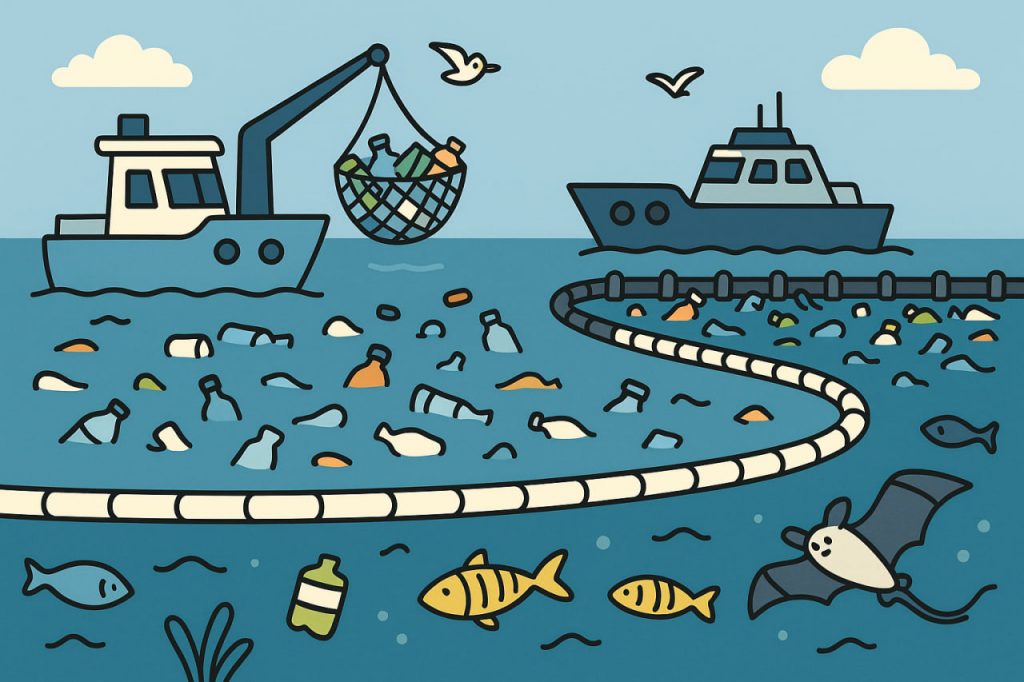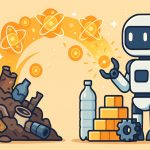The ocean is Earth’s largest ecosystem, covering over 70% of the planet’s surface. It regulates the climate, produces oxygen, and supports countless forms of life. However, human activity has led to severe pollution, including plastic debris, chemical runoff, oil spills, and microplastics. Cleaning the ocean is a global challenge that requires technology, international cooperation, and a change in human behavior.
Sources of Ocean Pollution
Most of the waste in the ocean does not originate there but comes from land-based activities. Rivers carry plastics, fertilizers, and industrial waste into the sea. Ships and offshore industries add oil, chemicals, and other contaminants. Even everyday actions like washing synthetic clothes release microfibers that eventually reach the oceans.
Methods to Clean the Ocean
Scientists and organizations have developed multiple strategies to remove existing pollution. One large-scale initiative is floating barrier systems, such as those deployed by The Ocean Cleanup, designed to collect floating plastics in areas like the Great Pacific Garbage Patch. Additionally, innovative projects use drones and autonomous vessels to gather waste from coastal zones and ports.
Preventing Pollution at the Source
Cleaning alone is not enough; preventing new waste is essential. Reducing single-use plastics, improving waste management, and developing biodegradable materials help cut pollution at its root. Governments are implementing bans on plastic bags and straws, while companies are investing in sustainable packaging. Public awareness campaigns also encourage people to recycle and reduce waste.
Biological and Chemical Approaches
Researchers are exploring natural and chemical methods to address pollution. Certain bacteria can break down plastics, while seaweed farms may absorb excess nutrients that otherwise cause harmful algal blooms. Scientists are also experimenting with enzymes capable of degrading plastic into reusable raw materials. These technologies are still under development but could play a major role in the future.
The Role of International Cooperation
Because the ocean is shared by all nations, no single country can solve the pollution crisis alone. Global treaties, stricter regulations on shipping, and shared investment in cleanup technologies are required. The United Nations Sustainable Development Goals emphasize protecting marine life and reducing pollution by 2030.
Conclusion
Cleaning the ocean is a monumental task but not an impossible one. With technological innovations, global cooperation, and changes in everyday human behavior, we can significantly reduce pollution levels. Protecting the oceans means preserving the climate, biodiversity, and ultimately, human survival.
Please don’t be silent. The more people on the planet who raise the issue of unity, ending wars, and overcoming the global crisis, the faster the world will change for the better.
Interesting Facts
Cleaning the ocean from pollution is one of humanity’s greatest environmental challenges, but also a growing field of innovation and cooperation. About 8–10 million tons of plastic enter the seas every year, much of it breaking down into dangerous microplastics that harm marine life and enter the food chain. Large-scale cleanup efforts, such as The Ocean Cleanup Project, use floating barriers and autonomous vessels to collect debris from ocean gyres like the Great Pacific Garbage Patch. Coastal cleanup programs and recycling initiatives remain essential, since 80% of ocean waste originates on land. Interestingly, scientists are exploring biodegradable materials, plastic-eating bacteria, and nanotechnology filters as future solutions. Individual actions — reducing single-use plastics, supporting sustainable fishing, and proper waste disposal — also play a vital role. Restoring the oceans isn’t only about removing trash; it’s about rethinking production, consumption, and global responsibility to protect Earth’s largest and most vital ecosystem.
Glossary
- Pollution – harmful substances introduced into the environment.
- Microplastics – tiny plastic particles that pollute water and harm marine life.
- The Ocean Cleanup – a global initiative using technology to remove plastic waste.
- Enzymes – proteins that accelerate chemical reactions, potentially useful for breaking down plastics.
- Sustainable Development Goals – international objectives set by the UN to promote global sustainability.


